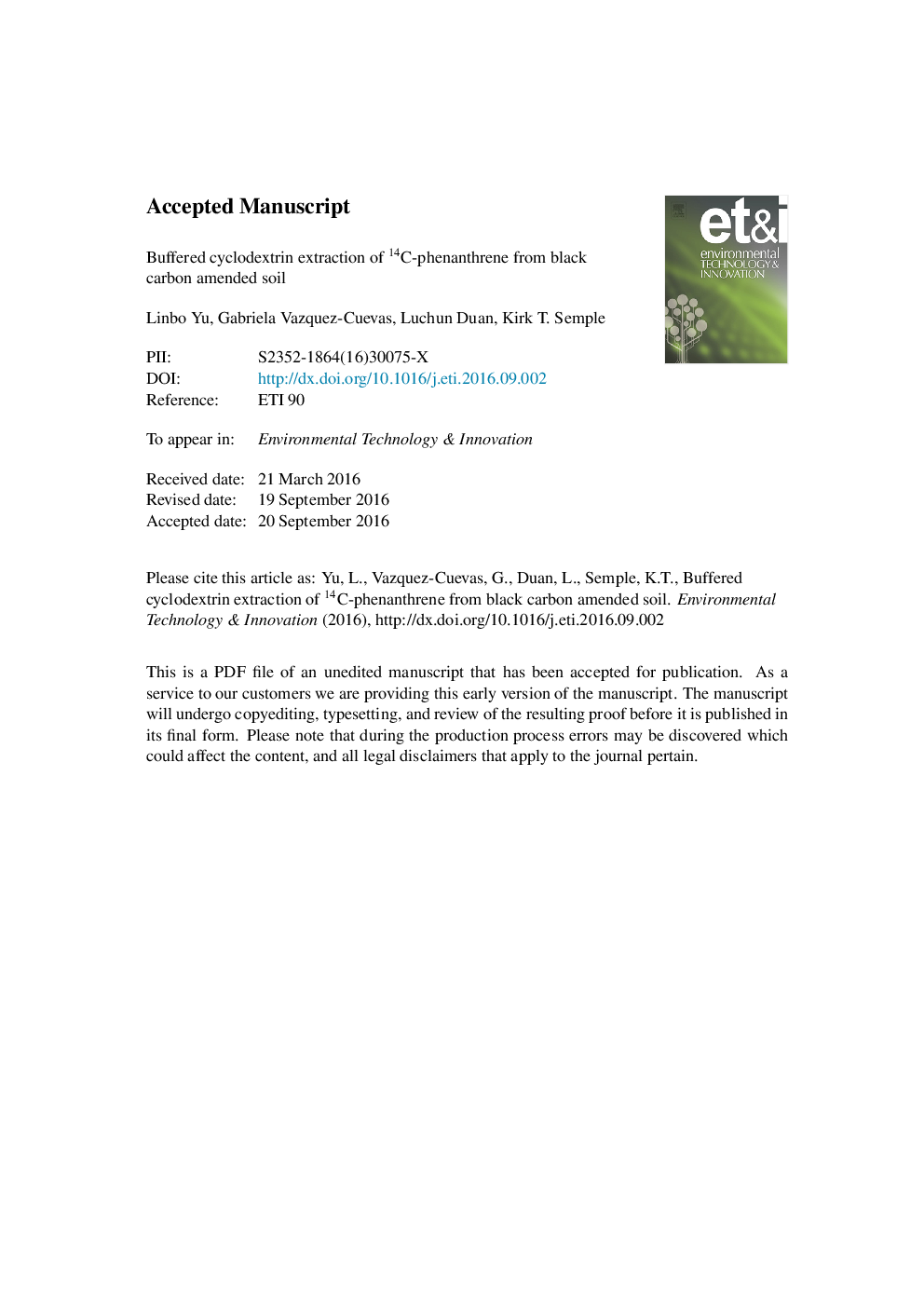| Article ID | Journal | Published Year | Pages | File Type |
|---|---|---|---|---|
| 8858100 | Environmental Technology & Innovation | 2016 | 26 Pages |
Abstract
The presence of black carbon (BC) in soil drastically reduced the mineralisation of 14C-phenanthrene and its extractability by hydroxypropyl-β-cyclodextrin (HPCD) extractions. This study also tested the effects of pH on the HPCD extraction of 14C-phenanthrene in soils with BC. Extractions using 60 mM HPCD solutions prepared in deionised water (pH 5.89) and phosphate buffers (pH 7 and 8) were conducted on 14C-phenanthrene-spiked soils amended with three different types of BC (1% dry weight) after 1, 25, and 50 d of ageing. Biodegradation assays using a Pseudomonas sp. strain were also carried out. Results showed that after 1 and 25 d, HPCD at pH 7 extracted significantly more 14C-phenanthrene (p<0.05) from BC-amended soils than the other two solutions (un-buffered and pH 8), while HPCD at pH 8 extracted statistically similar (p>0.05) amounts of phenanthrene compared to the un-buffered solution. At 50 d, HPCD at pH 8 generally extracted more 14C-phenanthrene from all treatments. It was proposed that higher pH promoted the dissolution of soil organic matter (SOM), leading to a greater solubility of phenanthrene in the solvent phase and enhancing the extractive capability of HPCD solutions. Although correlations between extractability and biodegradability of 14C-phenanthrene in BC-amended soils were poor, increasing pH was demonstrated a viable approach to enhancing HPCD extractive capability for the 14C-PAH from soil with BC.
Related Topics
Life Sciences
Environmental Science
Environmental Chemistry
Authors
Linbo Yu, Gabriela Vázquez-Cuevas, Luchun Duan, Kirk T. Semple,
